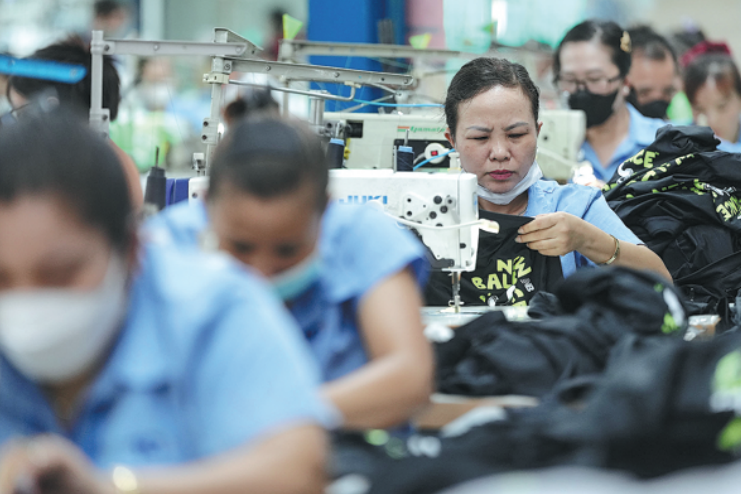China's automakers vie for wider global footprint

As electrification, smart connectivity, and globalization redefine the auto industry's dynamics, China's automotive sector is at a pivotal juncture of transitioning from scale to strength, amid unprecedented opportunities for international collaboration and strategic overseas expansion, experts and company executives said.
Su Bo, former vice-minister of industry and information technology, said while some nations and automakers have tempered their electrification timelines, the momentum toward intelligent, connected new energy vehicles remains unstoppable.
China's NEV exports surged to 1.284 million units in 2024, reaching over 160 markets, Su said at China EV 100 Forum 2025 which was held from March 28 to 30 in Beijing.
And the export model is evolving from shipments of full vehicles to a comprehensive "ecosystem export "strategy encompassing technology licensing, brand partnerships, battery supply chains, and charging infrastructure, Su said.
Leading Chinese firms like SAIC, BYD, Geely, and Changan Auto are deploying localized production through greenfield investments, joint ventures, and acquisitions.
Yet challenges persist, such as limited global brand equity, talent gaps, and rising trade barriers, Su said, adding that more efforts are needed to promote global cooperation and enhance drafting of international industry standards so that Chinese auto companies are better able to go global.
Zhang Yongwei, secretary-general of the China EV 100, an auto industry think tank, said the paths for Chinese automotive enterprises to participate in global development are becoming more diversified and innovative.
Following product exports and localized production overseas, Chinese automotive companies are adopting new models for global expansion. Chinese automakers have begun establishing joint ventures with overseas partners, co-creating brands, and empowering automotive industry development in host countries. This is a significant shift, Zhang said.
According to him, in the early stages, Chinese automakers primarily relied on export-oriented trade models. Entering a new phase, many automakers and component suppliers have shifted toward localized production overseas, gradually transferring vehicle manufacturing and supply chain systems to foreign markets and transforming into locally rooted automotive enterprises.
"This model has been well-received and proven effective in many overseas markets," Zhang said.
"Building on this foundation, Chinese automakers are now forming joint ventures and co-developing brands with overseas partners. The development model has evolved from independent overseas operations to capital partnerships and collaborative brand-building with foreign companies," he said.
Zhang also highlighted another emerging approach: Chinese automakers are empowering overseas dealers or production partners by helping them enhance their capabilities. Leveraging China's manufacturing and technological strengths, they are supporting the automotive industries of other nations and assisting these countries in realizing their own automotive brand aspirations.
"This cooperative and symbiotic globalization model — transitioning from product-centric trade to localized production, joint ventures, and ultimately shared industrial ecosystems — represents a new paradigm and highlight for Chinese automakers in global engagement," Zhang said.
"This approach, which fosters mutual growth, is gaining broader acceptance and remains a key focus of ongoing exploration in the industry," he added.
He Xiaopeng, chairman of Chinese electric vehicle company XPeng Motors, said the company has ambitious plans to bolster international sales, aiming for overseas markets to contribute half of the company's total sales by 2030.
The company, now China's top-selling new energy vehicle startup for two consecutive months, is accelerating its global footprint.
XPeng said by the end of 2024, its vehicles had reached 30 countries and regions, supported by a network of 150 overseas stores. Looking ahead to 2025, XPeng aims to accelerate its international growth, targeting entry into over 60 markets and expanding its overseas service network to more than 300 locations.
In late February, XPeng Motors initiated its 255th overseas shipment from the Nansha Port in Guangzhou, Guangdong province. This batch featured the company's all-electric MPV, the X9, destined for Thailand.




































